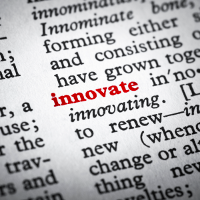 By Kevin Madigan & Adam Mossoff
By Kevin Madigan & Adam Mossoff
As the world prepares for the game-changing transition to 5G wireless systems, the high-tech industry must continue to efficiently develop and implement technologies and networks that work together across different platforms and devices. Few people are aware of how this happens, because it occurs solely between the companies who develop and implement technological products and services in the marketplace, such as Qualcomm, InterDigital, Microsoft, Apple, and others. Read more
 I. INTRODUCTION
I. INTRODUCTION

 By Wade Cribbs
By Wade Cribbs By Connor Sherman
By Connor Sherman As we highlighted in previous posts in this series (see
As we highlighted in previous posts in this series (see  By
By  A group of judges, former judges and government officials, law professors and economists with expertise in antitrust law and patent law
A group of judges, former judges and government officials, law professors and economists with expertise in antitrust law and patent law 